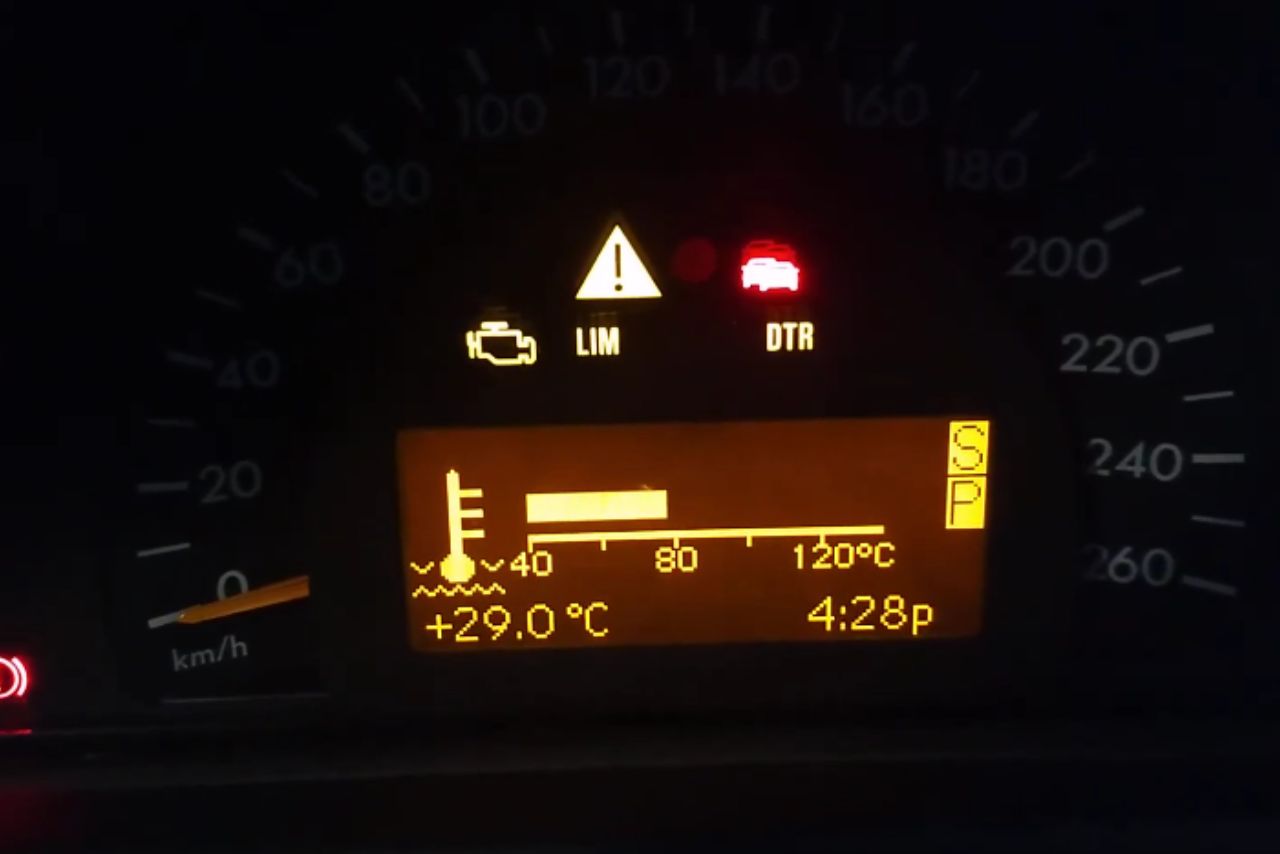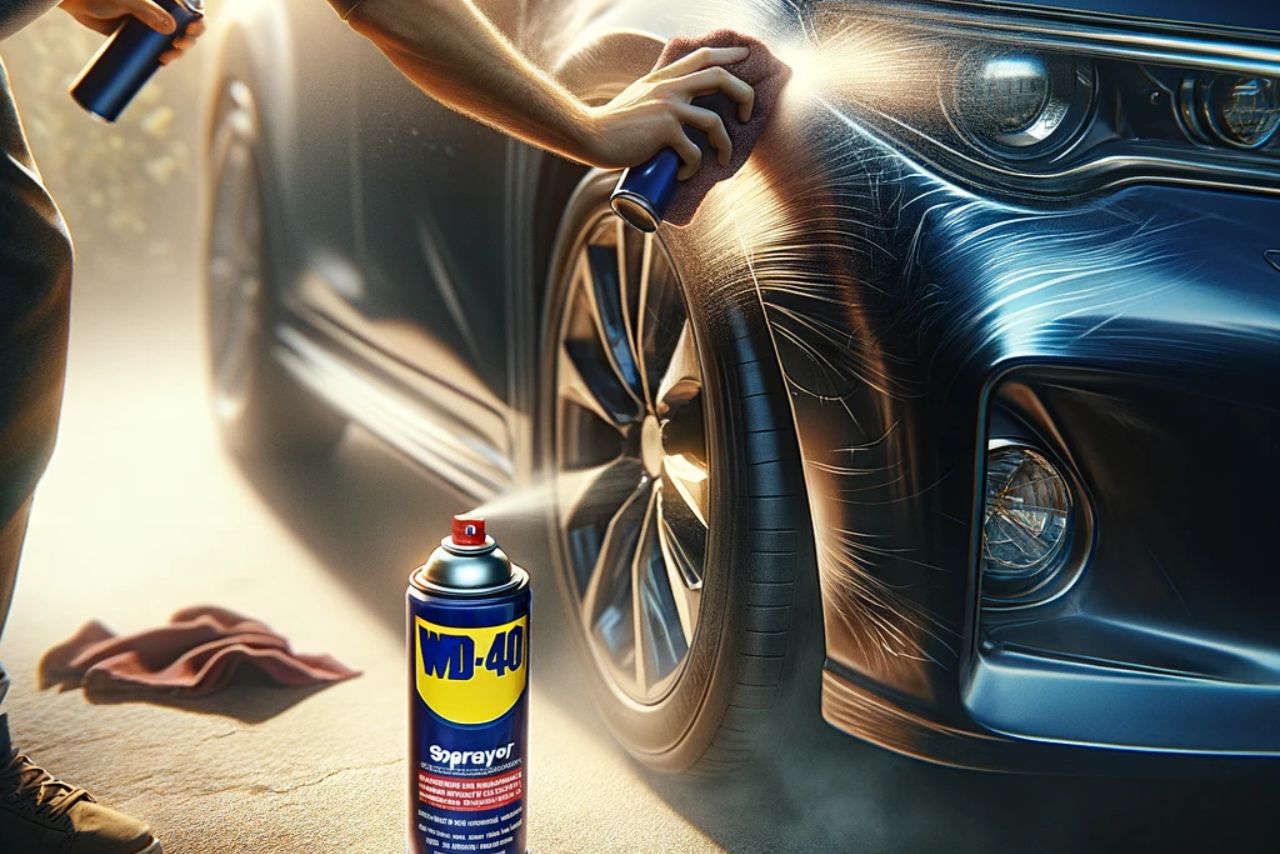Struggling with a “Reduce Oil Level Mercedes” message and unsure about the causes or how to fix it? We’ve got you covered.
This annoying alert could be triggered by several factors, including an overfilled engine oil reservoir or a faulty sensor, among other possibilities.
But don’t worry! With some quick tips and guidance, we’ll help you understand why this issue arises in your Mercedes Benz and offer practical solutions to get your vehicle running smoothly again.
It may result from overfilling during service. Drain excess oil, ensuring it aligns with the recommended capacity. Additionally, consider using a suitable synthetic oil like 0w40 or 5w40. If 7 litre is total oil capacity, Ensure the oil quantity aligns with the recommended 6.5 liters during an oil change, if 8 litre is total oil capacity then put in 7.5 Litres use the .5 left over, as not all oil drains.
Table of Contents
Common Causes of Reduce Oil Level in Mercedes:
The oil level sensor in your Mercedes-Benz vehicle plays a key role in maintaining optimal engine performance. However, when this sensor sends back an alert indicating high oil levels, it can signify several potential issues.
Here are some common causes:
| Possible Cause | Symptoms | Solution |
|---|---|---|
| Overfilled Engine Oil | Engine sputtering or misfire; Leaking from beneath car | Get professional help to drain excess amount |
| Faulty Oil Sensor | Inconsistent dashboard warnings despite normal driving conditions; No other noticeable symptoms | Replace faulty part after diagnostic check-up |
| Fluid Leak Into Reservoir | Mysterious decline in coolant/fuel levels coupled with high-oil reading; White smoke from exhaust (coolant leak) / Strong gas smell (fuel leak) | Inspect for leaks and repair as necessary |
| Mismatched Engine Oil Type | Increased frequency of ‘Reduce Oil Level’ warning message even after resolving issue earlier | Drain old & refill correct type/engine grade specific motor-oil |
Remember: When dealing with any sort of vehicle trouble – especially something as crucial as your engine’s lubrication system – it’s always best to consult a professional mechanic sooner than later!
Signs and Symptoms of Reduce Oil Level Mercedes:
Excessive oil levels can cause a range of issues in your Mercedes. It’s crucial to be aware of the signs and symptoms to prevent any severe damage.
Here are some common indicators:
Noticeable Performance Issues:
| Problem | Possible Cause |
|---|---|
| Engine Misfiring | Excess oil can foul spark plugs resulting misfires |
| Rough Idling | Overfilled engine oil could lead to rough idling |
In-vehicle Alerts
Remember that these are just possible symptoms; if you suspect an issue with your vehicle, always consult a professional mechanic for advice and service.
Why Is It Important to Reduce Oil Level in Your Mercedes?
Keeping your Mercedes’ oil level within the recommended range is crucial. Here’s why:
The table below illustrates potential damages due to overfilling:
| Potential Damage | Description |
|---|---|
| Gasket failure | Overpressure may cause gasket rupture leading to leaks |
| Seal damage | Seals might be forced open by high pressure causing leakage |
| Crankshaft harm | Frothy oil fails in providing required lubrication hence risking crankshaft |
Remember these steps when you get an “overfilled” message on your Mercedes’ dashboard:
- Stop driving immediately – continuing could worsen any potential damage.
- Check the dipstick – verify if it’s indeed an overfill situation.
- Visit a mechanic for professional help – they’ll safely reduce the oil levels for you.
Reducing excessive oil promptly ensures optimal engine health and longevity of your prized Mercedes-Benz!
Step-by-Step Guide: How to Check the Oil Level in Your Mercedes?

Follow these steps to accurately check your vehicle’s oil level:
Now, let’s proceed with checking the dipstick:
- Locate the dipstick (usually has a yellow or red handle).
- Pull out and clean off any oil from it using a rag or paper towel.
- Reinsert it fully into its tube, then pull it back out again.
Here’s how you can read your dipstick:
| Markings | Meaning |
|---|---|
| Top Notch/Line | Overfilled |
| Middle Area | Ideal Level |
| Bottom Notch/Line | Needs Refill |
If you discover that your Mercedes’ oil level is too high:
- Don’t panic! An overfill can happen due to various reasons like improper draining during last change or errors while refilling.
- Take immediate action by visiting professional service as excess oil could damage seals and cause leaks.
And there you have it – simple steps to check and understand what’s happening under that Benz bonnet!
How to Drain Excess Oil from Your Mercedes Engine?

Draining excess oil from your Mercedes engine is a straightforward task. It requires few tools and steps.
Tools Needed:
- Wrench
- Container for oil
- Gloves
Steps:
| Step | Action |
|---|---|
| 5 | Wait until all excess oil has drained into your container |
| 6 | Once fully drained, carefully screw back in place |
Remember:
- Recheck the dipstick level after removing some oil and running your Mercedes-Benz for approximately five minutes.
- If there’s still too much, repeat steps 1 through 6 until reaching an optimal level.
Note: Always dispose of old motor oils properly; many auto parts stores provide this service free!
Recommended Products for Fixing High Engine Oil Levels:
There are several products that can help you manage the oil level in your Mercedes. Here’s a quick rundown:
Oil Extractor Pumps:
EWK 6.5L Pneumatic/Manual Oil Extractor Pump – Ideal for easy and clean oil changes.
- Humanized Design
- Dual-Purpose
- No Oil Left
- Wide Application
- 12+6 Month warranty
Air Power America 5060TS Topsider Multi-Purpose Fluid Removing System – Allows you to remove excess oil without getting underneath the car.
- Easy to use; powered by vacuum pressure – no electricity needed
- Quickly extracts old oil through the dipstick tube into the 8 quart container
- Wide 12 inch diameter stance provides a stable base – eliminating any potential spills
- Portable – easy to operate in confined spaces
- No mess from spills or inconvenient drain plugs – used oil and other liquids are stored safely for proper disposal
Mercedes Approved Engine Oils:
Mobil 1 ESP X1 SAE 0W-30 – Formulated with high quality synthetic oils and a proprietary additive system.
- Part number: 121218
- Fit type: Universal Fit
- Package Weight: 5.443 kilograms
- Package Dimensions: 19.685 L x 24.13 H x 23.495 W (centimeters)
Shell Helix Ultra ECT C2/C3 Car Engine Oil – Offers excellent protection against wear, deposits and sludge.
- For best performance, follow the manufacturers recommendations in your vehicle owner’s manual.
- Heavy duty oil which provide reliable all-year-round performance in the applications for which they are intended.
- Low ash content minimizes formation of deposits and keeps intake ports clean
- Outstanding oxidation resistance that maximizes service life
- Excellent rust and corrosion protection of critical engine parts
Here’s a handy comparison table of these products:
| Product | Type | Key Feature |
|---|---|---|
| EWK 6.5L Pneumatic/Manual Oil Extractor Pump | Oil extractor pump | Suitable for multiple fluids |
| Air Power America 5060TS Topsider Multi-Purpose Fluid Removing System | Oil extractor pump | No need to lift or crawl under vehicle |
| Mobil 1 ESP X1 SAE 0W-30 | Engine oil | Outstanding thermal and oxidation stability |
| Shell Helix Ultra ECT C2/C3 Car Engine Oil | Engine oil | Designed for fuel economy |
Remember, before making any decisions, it’s important to consult your vehicle’s owner manual or contact an authorized Mercedes service center first!
Understanding the Role of PCV Valve in Preventing High Oil Levels:

The Positive Crankcase Ventilation (PCV) valve is a critical component within your Mercedes engine. It plays an essential role in controlling and reducing high oil levels. Here’s how:
However, if your PCV valve malfunctions or becomes clogged:
- This can lead to increased pressure within your engine.
- Excessive pressure can force motor oil into areas where it shouldn’t be.
Here are some signs that may indicate a faulty PCV valve:
| Symptoms | Explanation |
|---|---|
| Increased Oil Consumption | Your car might use more oil than usual due to inefficient combustion processes caused by a defective PCV valve. |
| Poor Acceleration | A failing PCV valve could cause poor fuel economy which will result in sluggish acceleration. |
To prevent excessive engine oil levels:
- Regularly check and maintain your vehicle’s PCV system.
- If there are signs of malfunction, consider replacing the faulty components promptly.
- Keep up with regular servicing; this includes changing out old or dirty engine oil.
Remember: Ignoring potential issues with your Mercedes’ engine can lead to costly repairs down the line!
Potential Damage Caused by Overfilling Engine with Oil:
Overfilling the engine oil in your Mercedes can lead to several serious issues. Here are some of the potential damages it might cause:
Increased Pressure
| Problem | Oil leaks or seal damage |
| Cause | Too much pressure from overfilled engine oil |
| Solution | Drain excess oil immediately |
Foaming
| Problem | Reduced lubrication and cooling capabilities |
| Cause | Frothing due to excessive amount of engine oil |
| Solution | Immediate removal of surplus oil |
Catalytic Converter Damage
| Matter | Catalytic Converter Damages |
| Rationale | Unburnt residue from excessive engine oils affects it negatively. |
| Mend | Rapidly drain extra oils and perform a thorough inspection. |
What Happens if You Ignore High Oil Level Warning Messages?
Ignoring high oil level warning messages in your Mercedes can lead to several critical issues. These include:
Here’s a brief table summarizing these effects:
| Potential Risk | Description |
|---|---|
| Engine Damage | Foamy, less effective lubrication can increase wear and tear on engine parts. |
| Catalytic Converter Failure | Burnt-off motor oil produces damaging byproducts potentially harming this essential component. |
| Increased Emissions | More engine-oil burning leads to higher emission levels, possibly failing environmental standards tests. |
Remember:
- Routinely check your car’s dipstick; keep within recommended marks
- If you spot an overfill issue, address it immediately
- Regular maintenance ensures long-term health of your vehicle
Ignoring a high-level warning message might seem like no big deal at first glance but remember – small issues often snowball into costly repairs down the line!
Tips for Maintaining Proper Oil Levels in Your Mercedes-Benz:
Maintaining the right oil level in your Mercedes-Benz is crucial. Here are some tips to keep it at the ideal mark:
Table: Recommended Engine Oils
| Model | Recommended Oil |
|---|---|
| C-class | Mobil 1 Synthetic |
| E-class | Castrol EDGE |
| GLS | Shell Rotella T6 |
Here’s how to check and top-off if necessary:
- Park on a flat surface.
- Wait for about 5 minutes after turning off the engine.
- Pull out the dipstick, wipe clean, re-insert then pull out again.
- If below ‘full’, add appropriate synthetic oil little-by-little until full mark is reached but not exceeded!
Remember, excess or insufficient levels can damage parts of engine leading to costly repairs!
Conclusion and final thoughts
The “Reduce Oil Level Mercedes” message can be a thorn in your side, but it’s important not to ignore it. This warning sign could be tipping you off about overfilling the oil reservoir or an issue with your oil level sensor.
Either way, acting promptly is key to prevent potential engine damage.
Remember that understanding the root causes and knowing how to fix them are crucial steps towards maintaining your Mercedes’ health.
By staying vigilant and responding appropriately to this alert, you’ll ensure smooth rides for years down the line!
Latest Posts:
- Can WD-40 Remove Scratches on Cars? (Hint: Yes, but…)
- Can You Use a Drill to Polish Your Car? (We Tried it Out!)
- Should You Cover Car Scratches With Stickers? (REVEALED!)
- Buick Service Stabilitrak: (Causes & 100% Guaranteed Fix!)
- Common Holden Trax Problems (Causes & 100% Proven Fixes!)
- Jeep Commander Transmission Over Temp: (Guaranteed Fix!)











Leave a Reply